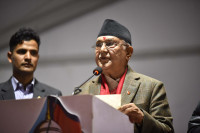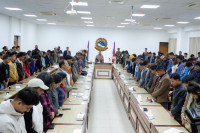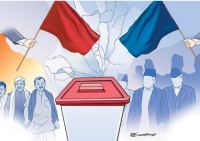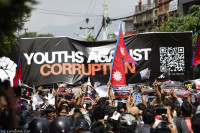Opinion
Needs a little tweaking
Saarc has gone through many ups and downs in its history, but it’s still the best hope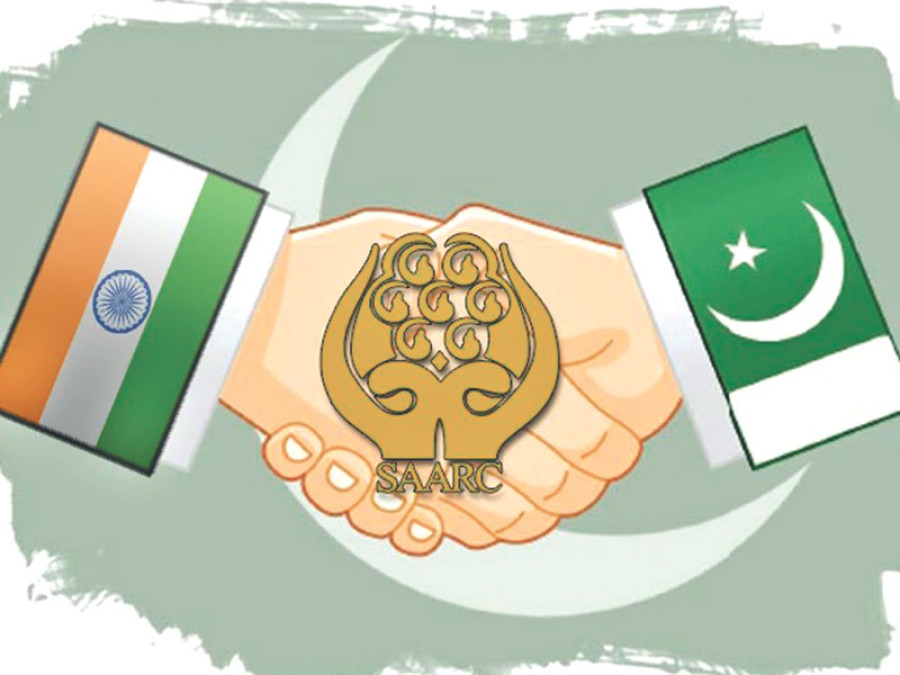
Rishi Raj Adhikari
The 19th Saarc Summit scheduled to be held in Pakistan from November 10-11 has finally been postponed following a commotion among its eight member states. After India expressed its inability to participate in the meeting due to rising tensions in the region, Bhutan, Afghanistan, Bangladesh and Sri Lanka quickly followed suit. Current chairman of the regional grouping Nepal had to play the role of a mediator. It urged the member states to exercise restraint, sort out the differences and hold the conference as scheduled. The reason behind the unfortunate turn of events could be the strained relations between India and Pakistan following an attack on a military installation at Uri in Kashmir in which 18 Indian troops were killed.
India has blamed Pakistan for supporting the raid, and claimed the attackers came from its side of the border. Pakistan has denied the charge. The incident has sparked speculation and statements in the media that Saarc has fallen into a coma and is near death. After the summit was postponed, the general public, think tanks and civil societies in the member countries have shown concern at the deterioration of the situation. They feel that the deferment has greatly jeopardised the process of any meaningful dialogue on the basic issues concerning the region, namely poverty, marginalisation and injustice. This is bound to deepen the distrust and antagonism already prevailing in the region. They feel that Saarc should be better activated to address the burning issues and to create common convergences by keeping the countries together.
For a cause
South Asia is the poorest region on earth, which houses two-fifths of the world’s poor. A shared aspiration among the governments and peoples in the area to eliminate endemic poverty and marginalisation led to the formation of the South Asian Association for Regional Cooperation (Saarc).There is concern that Saarc has not included the people in its functioning and that its performance has not been satisfactory. However, it must be noted that the European Union (EU) and the Association of Southeast Asian Nations (Asean) underwent many years of development to reach the present stage. From this standpoint, there is every room for optimism that Saarc will continue to grow for the realisation of its objective of improving the quality of life of the people in the region.
Even though Saarc’s achievements have fallen short of expectations, it has laid a solid foundation for the growth of the association with the development of institutional and legal frameworks, and different areas of cooperation for the region’s socio-economic development. Nepal was deeply involved in the establishment of Saarc before it was formally founded in December 1985 in Dhaka, Bangladesh. Considering the tangible contributions made by Nepal’s diplomatic efforts, the headquarters of Saarc was set up in Kathmandu in 1987.
The association was founded in a bid to promote “peace, stability, amity and progress in the region” with particular respect for the “principles of sovereign equality, territorial integrity, national independence, non-use of force and non-interference in the internal affairs of other states and peaceful settlement of all disputes”. In the initial years, Saarc made steady progress as enshrined in its charter. However, ripples created by the uneasy ties between its more powerful and competing member states, coupled with political wrangling in the domestic politics of other member states, stunted progress in the following years. This has resulted in the postponement of summits and other important meetings on several occasions. Just as there are ample opportunities for the growth of Saarc, so are there numerous challenges before it.
Measures to take
Prime Minister Pushpa Kamal Dahal proposed making changes to the Saarc Charter at the Saarc Regional Effectiveness Conference held recently in Kathmandu. There is a growing clamour among various sections in the region that the current Saarc setup needs to be restructured as it has become less effective. The following measures have been suggested to strengthen Saarc: a) The secretariat needs to be strengthened and equipped to monitor and review the progress on implementation of resolutions adopted by the summit that includes not only adding staff of higher calibre and status but also adding experts as required; b) The position of the Saarc Secretary-General should be upgraded to the ministerial level and it should be mentioned in the Saarc Charter; c) A post of Deputy Secretary-General (ambassadorial rank) should be created and the candidate should be nominated on the basis of national rotation for a four-year fixed tenure; d) The member states should appoint their respective ambassadors as permanent representatives to Saarc; e) The directors should be appointed by the Secretary-General based on specific criteria approved by the member states.
Though Saarc may not have been able to achieve all it could or should have during the past 31 years, it certainly has brought its members closer over a common platform to address common issues. Notable progress has been made in formulating policies on promoting democracy in the region, addressing regional and sub-regional security and maritime issues, combating trafficking and health issues like TB, HIV/AIDS and operating South Asian University.
The myriad challenges before the region can be addressed only through mutual cooperation and joint efforts. Mutual trust and goodwill are the basis for effective cooperation among the member countries, which alone can bring about meaningful change and improvement in the living conditions of the people in the region. Given the richness of South Asia in terms of human and natural resources, huge market potential and scope for fast economic growth, countries and entities around the world are interested in forging collaboration and cooperation with Saarc. We can utilise these opportunities only when we stand together.
Adhikari is foreign affairs advisor to the prime minister




 18.12°C Kathmandu
18.12°C Kathmandu
